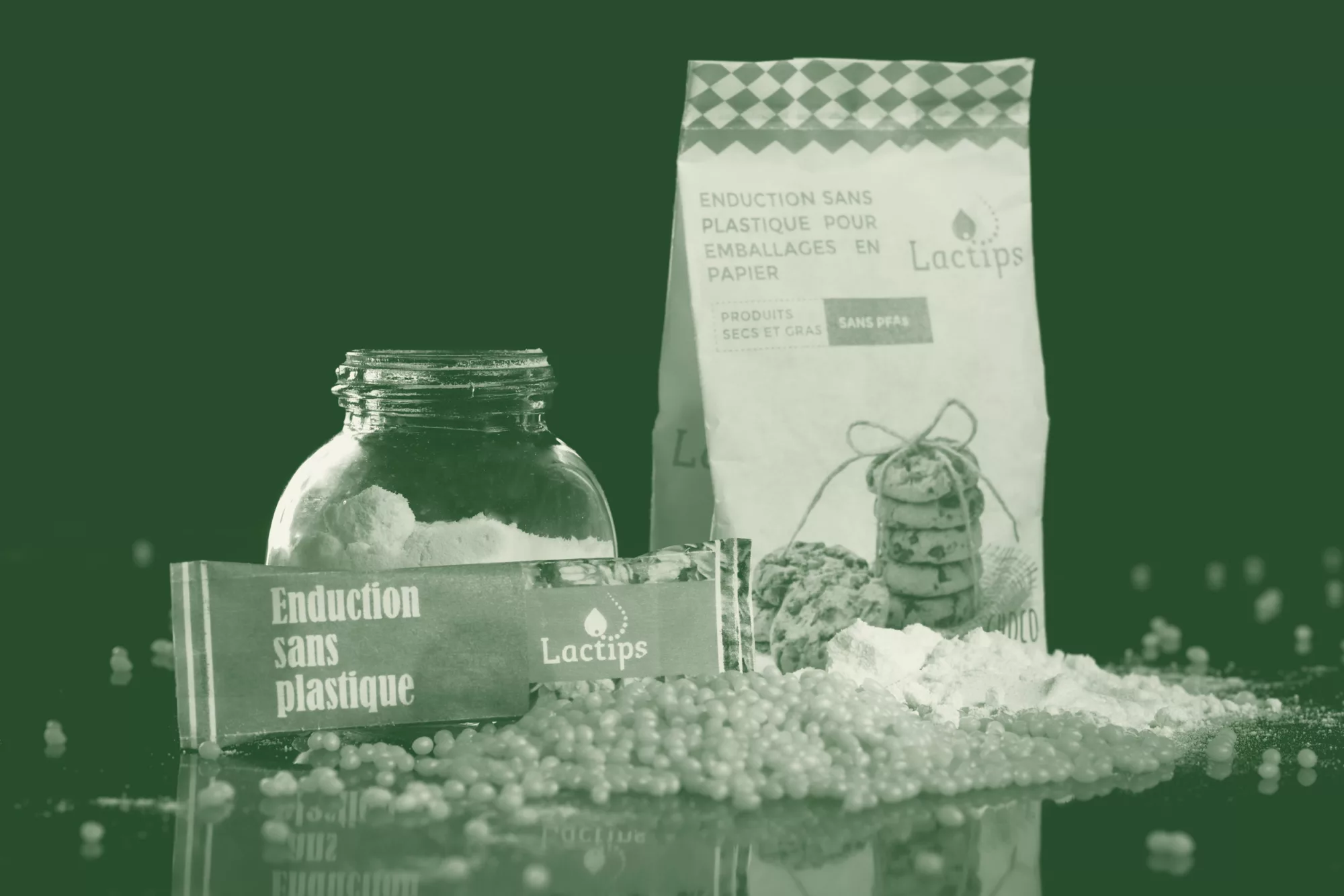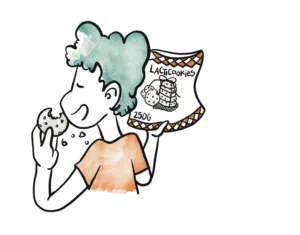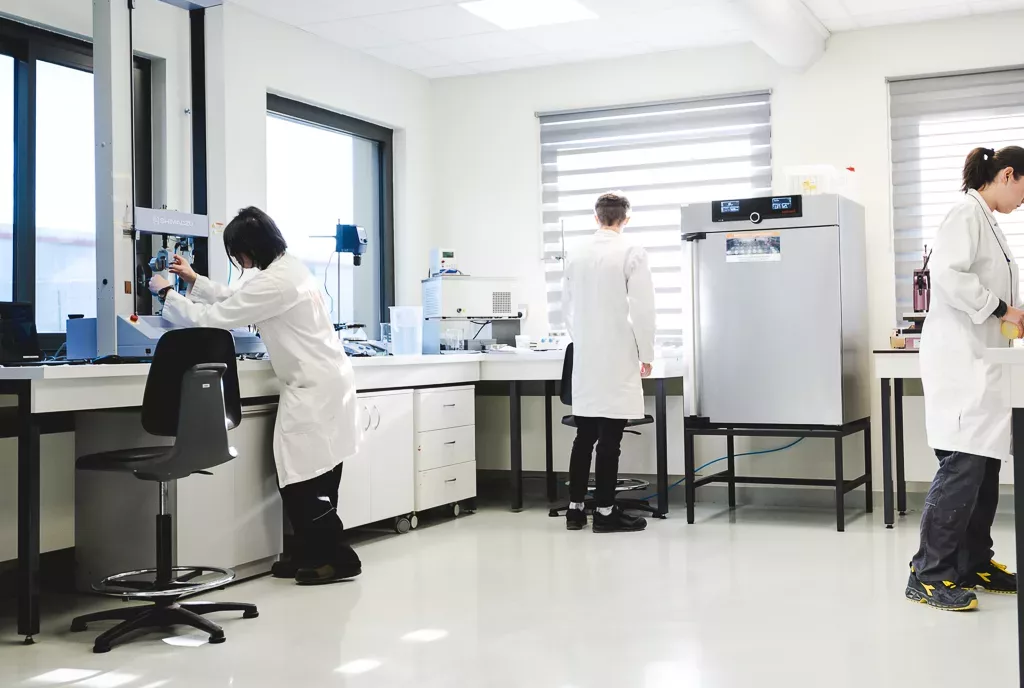Towards more sustainable products and packaging
The exceptional properties of CareTips® make it an ideal alternative to plastics in a wide range of sectors.
Fully compatible with industrial equipment, CareTips® addresses regulatory issues while offering sustainable solutions when it comes to both packaging and product end-of-life.

Which sectors?
Our CareTips® natural polymer is suitable for use in a wide range of sectors. Whatever the industry, it provides an effective solution when it comes to reducing the environmental and health impact of products at every stage in their life cycle.
Food industry
Hygiene and cosmetics
Agriculture
Horticulture
Reuse
Manufacturing
Outdoor sports
Your own business :)
Got a sustainable initiative in mind? We will help you make it happen
Which applications?
CareTips® provides a sustainable alternative to traditional plastics. Whether used on its own or as part of your formulations, it can be adapted to different industrial processes to dramatically reduce microplastic pollution.
Flexibility to guide you through your ecological transition
Do you have a particular project in mind? CareTips® can be adapted to your specific needs.
Whether you have already decided on a formulation or are looking to incorporate our technology into your existing products, our solutions are designed to work with you as you make the transition to more sustainable and environmentally-friendly solutions.
Important note about applications currently under development
Certain applications are still in the exploration or development phase. If you have an idea or a question about a sector or a potential use for CareTips®, please contact our teams so that we can work with you to explore the feasibility of a tailor-made solution..
Q&A
Lactips is a leading actor in the transition towards sustainable materials. We manufacture thermoplastic pellets using casein, a naturally occurring protein, which is used in a variety of end applications. We supply this raw material to our customers, who incorporate it into products such as plastic-free paper packaging, water-soluble films used in labelling, and biodegradable products for agriculture and outdoor sports. Lactips does not manufacture end products but works closely with each individual sector to offer high-performance, environmentally-friendly solutions.
Yes, Lactips is a 100% French manufacturing company based in Saint-Paul-en-Jarez (42),
where our first production line is up and running in a 4,200 m2 plant. Our entire manufacturing process takes place in France, in keeping with our commitment to local and sustainable industrial development.
Yes, we are able to disclose our LCA provided that a confidentiality agreement is signed. We are in the process of to putting the finishing touches to a simplified life cycle description of our product, with a view to keeping our partners better informed about its environmental impacts and benefits.
Our product is made from casein, a naturally occurring protein obtained from milk. This by-product of the dairy industry is already widely used in other sectors. It is ideally suited to the manufacture of sustainable, high-performance bioplastics.
The casein we currently use is a by-product of the dairy industry. Produced as a result of the process of milk cracking, our raw material comes from an existing source, which is currently under-used, meaning that demand is not particularly heavy.
We are also working on obtaining casein from “waste”, i.e. milk that is no longer fit for consumption and that is currently dumped.
Our product is not certified organic. We use casein from a traditional dairy supply chain. However, we are committed to working with French and European suppliers whose CSR strategies are increasingly focusing on organic farming.
Yes, Lactips’ product is designed for use in direct contact with food. Its natural and biodegradable properties mean that it is safe and stable for use with food, and it complies with all safety and hygiene regulations.
Yes, the raw material used by Lactips makes it possible to produce paper packaging from which 100% of the fibres can be recovered once the product has been recycled. It thus complies with PPWR (Proposal for a Regulation on Packaging and Packaging Waste) standards.
Our coating material is ideal for paper packaging designed to hold both fatty and dry foods. However, due to the water-solubility of our product, it is not suitable for use with moist products, such as fresh meat or certain fruit and vegetables, as the moisture could affect the structural integrity of the packaging.

En poursuivant votre navigation sur ce site, vous acceptez l’utilisation de Cookies utilisés pour réaliser des statistiques de visites sur notre site. Nous utilisons la technologie Google Analytics. Nous vous invitons à consulter notre politique de protection des données personnelles détaillée dans notre site.

Vous pouvez définir ci-dessous vos préférences de consentement et déterminer la manière dont vous souhaitez que vos données soient utilisées en fonction des objectifs mentionnés.




